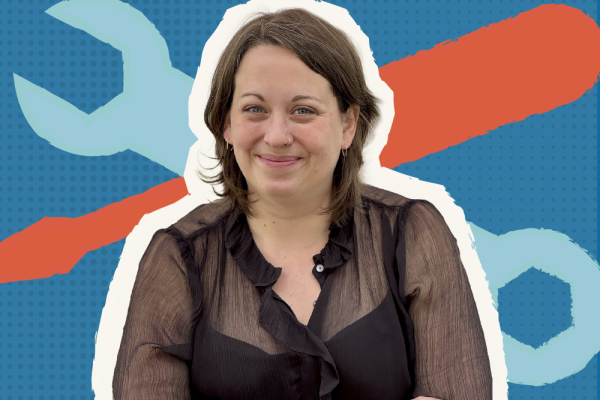A few months ago I decided that some unsightly varicose veins needed some attention. They started appearing during pregnancy years ago, small purple squiggles drawing a map to nowhere. I paid no mind, but as the years went on, vanity was one thing. Pain was another, even for some one with a high pain tolerance (I’ve had my eyelids tattooed). Living with a steady throbbing in your leg starts to wear and tear on you in ways you don’t notice until you notice.
I had high hopes that few quick injections would do the trick, but I am not a doctor. The veins I could see and the pain I experienced were just symptoms of something deeper in my leg, and it would require a bigger needle with a laser snaking its way into the source of the problem, collapsing a larger, failing vein in order for the healthier veins to take over. The doctor needed to map out the veins and circulation in my entire right leg before deciding what the treatment would be. The office staff worked with my insurance provider (thank goodness I have the privilege of health insurance!) to work out coverage. The procedure took minutes, but the healing process could take up to a year for the collapsed vein to be fully absorbed with healthier circulation kicking in. Until then, sexy compression stockings, lots of walking, and limited exposure to sun — because the work deep inside can make the exposed skin susceptible to permanent discoloration.
READ: Repairing the Damage of White Privilege
Repairing isn’t as easy as it sounds. It’s rarely as straightforward as we hope for. And sometimes it’s downright costly, or worse, impossible.
If the church wants to be a part of repairing entire communities, we need to be willing to do at least three things: Gather the experts, put in the time, and give and live sacrificially.
1. Gather the experts.
As members of a local faith community we are part of a team of people who can help identify, diagnose, and suggest “treatment” plans. We cannot and should not swoop into communities, even ones we live in, and decide on our own what needs to be fixed or who is need of help. What community organizations already exist? Who are the people who get people to the polls? Where are the movers and shakers of the community (who aren’t sitting on a board of directors because they are sitting with their community)? We need to be with them and let them lead and be the experts.
2. Put in the time.
And then we have to be patient. The United States is barely out of infancy, with a racialized and racist history we are barely willing to teach and discuss. And North America and Native America is an older, slower story we’ve erased. In order for any hope of long-lasting healing and renewal, we must be patient with the process of repair.
3.Live sacrificially.
We all want things to be better, but do we long for the Kingdom on earth as it is in heaven enough to give and live sacrificially? As the debates around health care continue to ramp up, individuals have often said to me that Christians have too often relied on the government to do the work of the church. That church work will take money.
I noticed yesterday that the site of the two larger injections and treatments still hurt, despite it being weeks later. Some of the ugly veins are gone, but not all of them have faded. And the sexy compression stocking is still part of the daily rotation.
It’s going to take time. We need to take the time to do this right.
Got something to say about what you're reading? We value your feedback!







